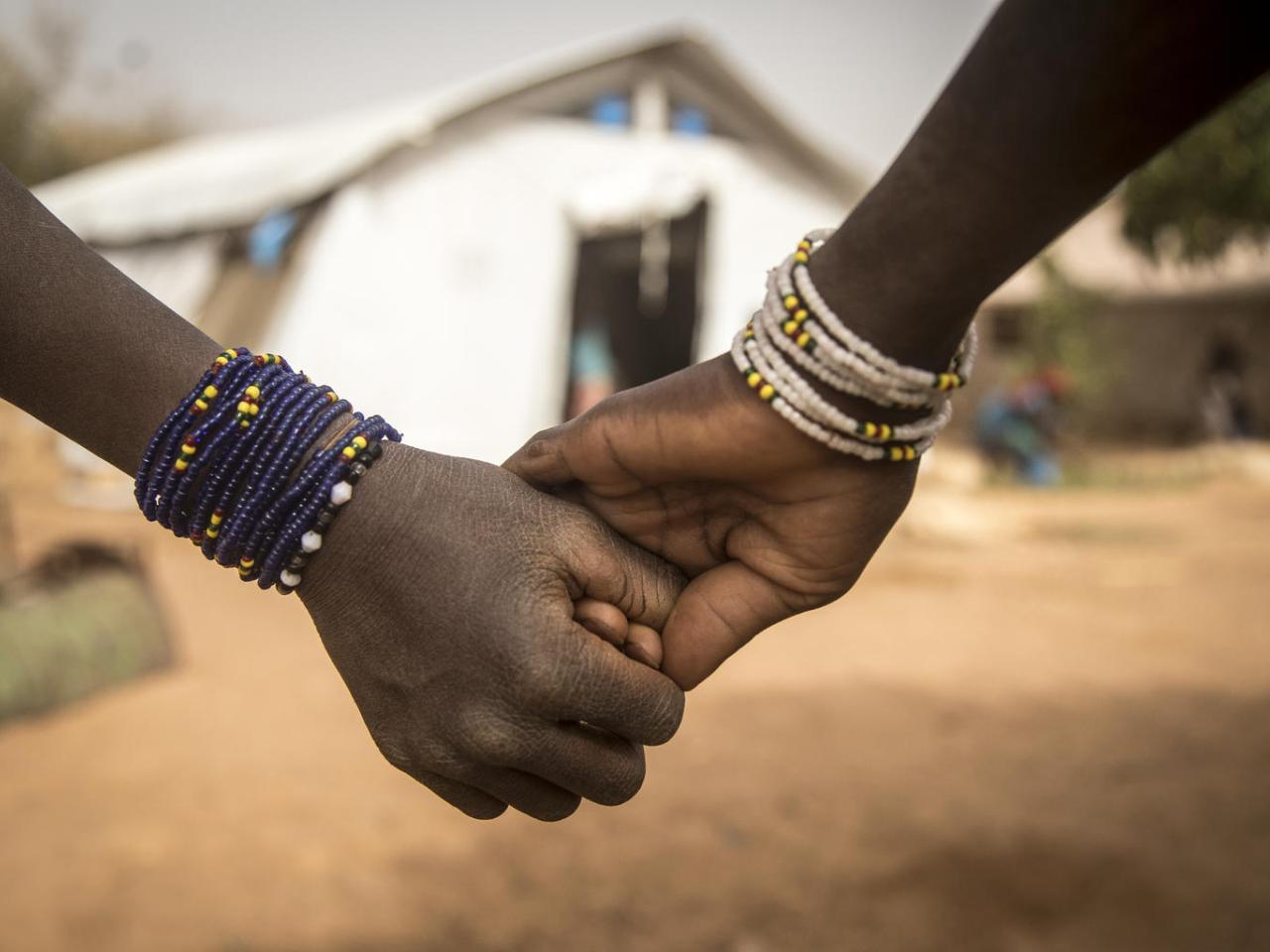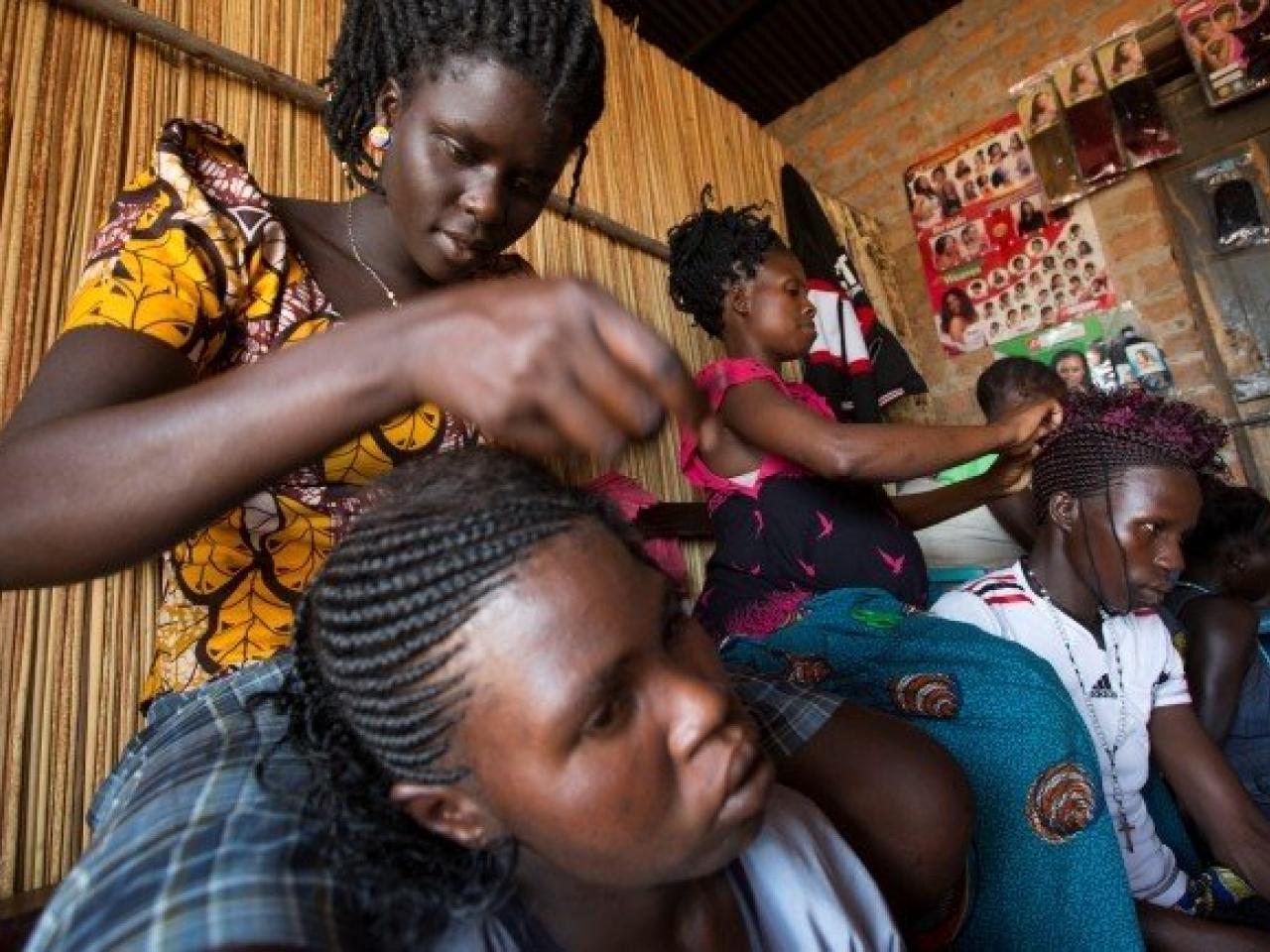Arrested for being raped: changing harmful laws and norms in Nigeria

SOKOTO, Nigeria – At just 13, Halima* didn’t really understand that she was pregnant. In fact, she was almost eight months along when some neighbours noticed her pregnancy and relayed the information to police. Upon questioning, Halima revealed that she had been raped by a neighbour - but instead of receiving support, she was arrested and prosecuted for adultery.
Halima was charged under Sharia Law, a legal system based on an interpretation of Islam that governs parts of northern Nigeria. Unlike her attacker, she pleaded guilty to the charges and was sentenced to a six-month jail term or a fine of 6,000 Nigerian naira - a sum her family could not afford. “I had given up and resolved to watching my daughter wallow in pain and shame daily,” said Halima’s mother.
Halima’s fortunes changed when the magistrate involved in the case attended a Spotlight-supported orientation on the importance of protecting girls’ and women’s rights. Recognizing that Halima was both a child and a survivor of sexual violence who should not have been punished, he referred her case to a pro-bono lawyer attending the orientation session. The lawyer was then able to have the alleged perpetrator arrested, as well as support Halima to deliver the baby safely.
“I had given up and resolved to watching my daughter wallow in pain and shame daily” - Halima’s* mother
Halima has since been moved to a safe house so that she can bond with her baby and live free from fear of reprisal. When her child is older, she hopes to return to school.
Stories like Halima’s highlight the need to change the laws and attitudes that normalize violence against women and girls. In Nigeria, more than 17 per cent of women experience violence in their lifetime, though the true statistics are likely much higher. More than 43 per cent of girls aged 20 to 24 were married or first in union before the age of 18.
Although the government has made significant efforts to ensure justice for survivors of violence, child rights law is lacking in the state of Sokoto where Halima lives. Nigeria enacted the Child Rights Act (CRA) in 2003, but requires that each of its 36 states domesticate the act – something Sokoto is yet to do.
To help overcome these challenges, the Spotlight Initiative is investing in strengthening protections for women and children experiencing violence at every level. Training sessions like the one attended by the magistrate in Halima’s case are being conducted for social workers, police, health care workers, teachers and civil society organizations to help them better meet the needs of survivors.
The government’s capacity to collect, collate and manage data – a critical step in changing and strengthening laws - is also being built through training sessions on child protection information management systems.
At the community level, gender-sensitization sessions are being held in communities to help end negative social norms and harmful practices that perpetuate violence.
It’s only through a sustained, multi-sector response to violence that girls like Halima will get the justice and bright future that they deserve.
By Judith Owoicho. Photo: Patrick Rose/UNICEF
*name has been changed to protect survivor


